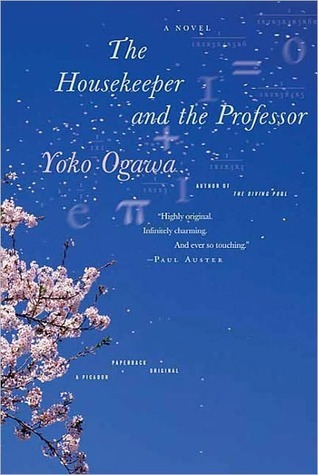More on this book
Community
Kindle Notes & Highlights
The Professor never really seemed to care whether we figured out the right answer to a problem. He preferred our wild, desperate guesses to silence, and he was even more delighted when those guesses led to new problems that took us beyond the original one.
He had a special feeling for what he called the “correct miscalculation,” for he believed that mistakes were often as revealing as the right answers. This gave us confidence even when our best efforts came to nothing.
“That’s right! The sum of the factors of 220 is 284, and the sum of the factors of 284 is 220. They’re called ‘amicable numbers,’ and they’re extremely rare. Fermat and Descartes were only able to find one pair each. They’re linked to each other by some divine scheme, and how incredible that your birthday and this number on my watch should be just such a pair.” We sat staring at the advertisement for a long time. With my finger I traced the trail of numbers from the ones the Professor had written to the ones I’d added, and they all seemed to flow together, as if we’d been connecting up the
...more
“I’m going to call you Root,” he said. “The square root sign is a generous symbol, it gives shelter to all the numbers.”
“There are lots of deficient numbers that are just one larger than the sum of their divisors, but there are no abundant numbers that are just one smaller than the sum of theirs. Or rather, no one has ever found one.” “Why is that?” “The answer is written in God’s notebook,” said the Professor.
Since he was very small, he’d often had to console me when I came home from work in tears—when I’d been accused of stealing, or called incompetent, or had the food I’d made thrown away right in front of me. “You’re beautiful, Momma,” he’d say, his voice full of conviction, “It’ll be okay.” This was what he always said when he comforted me. “I’m a beauty?” I would ask, and he’d say, feigning astonishment, “Sure you are. Didn’t you know?” More than once I’d pretended to be crying just to hear these words; and he’d always play along willingly.
The Professor loved prime numbers more than anything in the world. I’d been vaguely aware of their existence, but it never occurred to me that they could be the object of someone’s deepest affection. He was tender and attentive and respectful; by turns he would caress them or prostrate himself before them; he never strayed far from his prime numbers. Whether at his desk or at the dinner table, when he talked about numbers, primes were most likely to make an appearance. At first, it was hard to see their appeal. They seemed so stubborn, resisting division by any number but one and themselves.
...more
Among the many things that made the Professor an excellent teacher was the fact that he wasn’t afraid to say “we don’t know.” For the Professor, there was no shame in admitting you didn’t have the answer, it was a necessary step toward the truth.
It was as important to teach us about the unknown or the unknowable as it was to teach us what had already been safely proven.
I remembered something the Professor had said: “The mathematical order is beautiful precisely because it has no effect on the real world. Life isn’t going to be easier, nor is anyone going to make a fortune, just because they know something about prime numbers. Of course, lots of mathematical discoveries have practical applications, no matter how esoteric they may seem. Research on ellipses made it possible to determine the orbits of the planets, and Einstein used non-Euclidean geometry to describe the form of the universe. Even prime numbers were used during the war to create codes—to cite a
...more
“So you might wonder where you would ever find a real line—and the answer would be, only in here.” Again, he pointed at his chest, just as he had when he had taught us about imaginary numbers. “Eternal truths are ultimately invisible, and you won’t find them in material things or natural phenomena, or even in human emotions. Mathematics, however, can illuminate them, can give them expression—in fact, nothing can prevent it from doing so.”
Perhaps there was no fathoming God’s notebooks after all. In the entire universe there were only a handful of especially gifted human beings able to understand a tiny part of this order, and then there were the rest of us, who could barely appreciate their discoveries.
He treated Root exactly as he treated prime numbers. For him, primes were the base on which all other natural numbers relied; and children were the foundation of everything worthwhile in the adult world.
“So who was it? Who discovered zero?” “An Indian mathematician; we don’t know his name. The ancient Greeks thought there was no need to count something that was nothing. And since it was nothing, they held that it was impossible to express it as a figure. So someone had to overcome this reasonable assumption, someone had to figure out how to express nothing as a number. This unknown man from India made nonexistence exist. Extraordinary, don’t you think?


